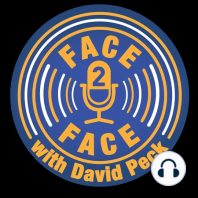1 min listen

Episode 493 - Alanis Obomsawin - The Messenger
Episode 493 - Alanis Obomsawin - The Messenger
ratings:
Length:
35 minutes
Released:
Mar 11, 2020
Format:
Podcast episode
Description
Alanis Obomsawin and Face2Face host David Peck talk about reconciliation, leaving a legacy, Jordan’s Principles, passion, commitment, advocacy, fighting back and why every child matters.TrailerMore Info HereSynopsis:It took one little boy, Jordan River Anderson, to ensure that thousands of First Nations and Inuit children can today receive the same standard of social, health and education services as the rest of the Canadian population. In Jordan River Anderson, The Messenger, Alanis Obomsawin’s latest film (her 52nd), the renowned documentary filmmaker chronicles the long legal fight against a health care system that operated on two disconnected levels, causing injustices and suffering—a situation that has since been significantly improved. The Abenaki filmmaker traces the parallels between the lives of two First Nations children, Jordan River Anderson and Noah Buffalo-Jackson.A member of the Norway House Cree Nation of Manitoba, Jordan River Anderson had very serious health problems, for which he was being treated at a Winnipeg hospital. He could have ended his life in adapted housing close to his family, but because of his Indian status a dispute arose between the governments of Canada and Manitoba over who should pay the costs of his relocation to home-based care. Jordan died in hospital in 2005. Jordan’s Principle, which states that the first government agency to be contacted is the one responsible for this phase of a child’s care, was unanimously adopted by the House of Commons in 2007, and a ruling by the Canadian Human Rights Tribunal resolved the issue of jurisdiction.Many people and organizations worked hard for this outcome, but despite the judgment and the funding that was allocated for Jordan’s Principle, many First Nations and Inuit parents are still faced with a refusal of social, health and educational services. For example, when Carolyn Buffalo and Richard Jackson needed specialized transportation for their teenage son, Noah Buffalo-Jackson, who suffers from cerebral palsy, they had to pay for it themselves. Similarly, the First Nation of Wapakeka in Ontario appealed for assistance in combating a wave of suicides in their community, but received no help. “We hear a lot about universal health care in Canada,” says Aimée Craft, a law professor at the University of Ottawa who is interviewed in the film, “but why is it universal for everyone except First Nations children?”Numerous binding government orders and the goodwill of several Canadian government officials, both Indigenous and non-Indigenous, were required before First Nations and Inuit parents and children were finally able to enjoy appropriate support. “The law is a shield that protects this generation of children,” observes Cindy Blackstock, director general of the First Nations Child and Family Caring Society, and one of the protagonists of the documentary. “It restores their dignity, and allows them to grow up within their own families. Justice is possible.”Filmed in centres of political power, in First Nations communities, and at public demonstrations, Jordan River Anderson, The Messenger provides a forum in which the voices of parents, caregivers, and their legal representatives can all be heard. Alanis Obomsawin’s latest documentary completes, on a note of optimism, the cycle of films devoted to the rights of children and Indigenous peoples that she began with The People of the Kattawapiskak River.About the Director:Alanis Obomsawin, a member of the Abenaki Nation, is one of Canada’s most distinguished documentary filmmakers. As a prolific director with the National Film Board, she has created an extensive body or work focusing on the lives and concerns of Canada’s First Nations.She began her professional career in 1960 as a singer in New York City. In 1967, producers Joe Koenig and Bob Verrall invited her to join the NFB as an adviser on a film about Indigenous peoples. She has not put down her camera since.An activist as well as a filmmaker, Oboms
Released:
Mar 11, 2020
Format:
Podcast episode
Titles in the series (100)
River - Jamie Dagg by Face2Face with David Peck